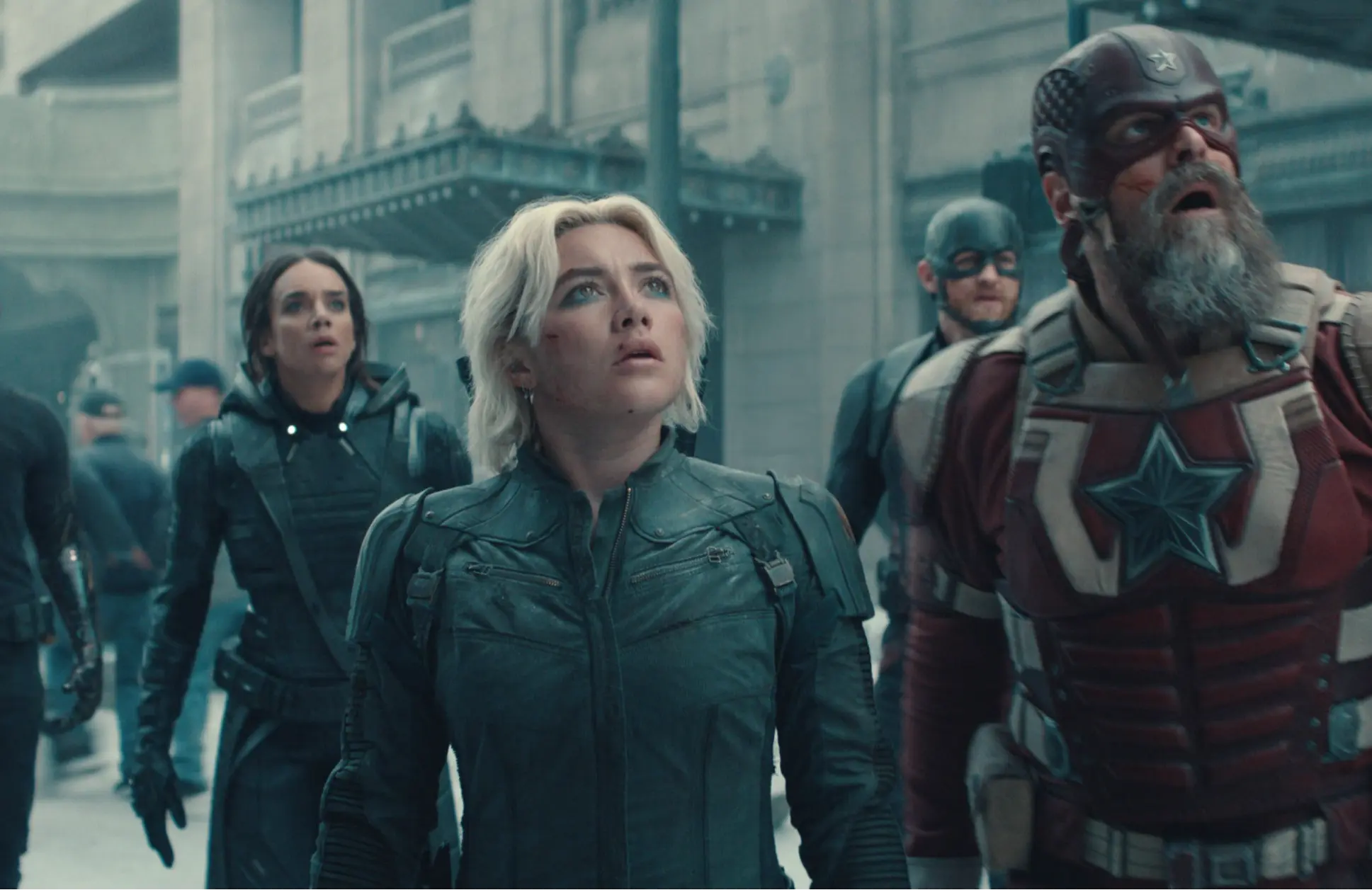This character's death in Thunderbolts* could reshape the MCU (and no one saw it coming)
-
 THUNDERBOLTS*, (aka THUNDERBOLTS), from left: Sebastian Stan as Bucky Barnes, Hannah John-Kamen as Ghost, Florence Pugh as Yelena Belova, Wyatt Russell as John Walker, David Harbour as Red Guardian, 2025. © Marvel / © Walt Disney Studios Motion Pictures / courtesy Everett Collection
THUNDERBOLTS*, (aka THUNDERBOLTS), from left: Sebastian Stan as Bucky Barnes, Hannah John-Kamen as Ghost, Florence Pugh as Yelena Belova, Wyatt Russell as John Walker, David Harbour as Red Guardian, 2025. © Marvel / © Walt Disney Studios Motion Pictures / courtesy Everett CollectionThunderbolts*, Marvel’s latest ensemble espionage thriller, wastes no time in upending expectations by executing Taskmaster—Olga Kurylenko’s Antonia Dreykov—in the film’s opening salvo, a choice Jake Schreier defends as necessary “shock or surprise” to set a high-stakes tone.
Taskmaster first appeared in Black Widow (2021) as a brainwashed assassin rescued by Natasha Romanoff, only to return here as one of Valentina Allegra de Fontaine’s coerced operatives before being cut down in seconds.
By dispatching such a visually striking character almost immediately, Marvel reminds us that even well-established faces aren’t safe, suggesting that Taskmaster’s death could reshape the MCU in unexpected ways.
Thunderbolts* gathers morally gray figures—from Yelena Belova to Ghost—into a reluctant team, blending spycraft with superhero action to explore how far someone will go when redemption and survival hang in the balance.
Why Taskmaster’s death in Thunderbolts* could reshape the MCU
Taskmaster has long been a unique asset in the MCU: introduced as Antonia Dreykov in Black Widow, she melded brutal efficiency with a tragic backstory, hinting at a possible path to redemption.
Yet Schreier’s decision to kill her off in Thunderbolts* first act was intentional—a narrative sledgehammer designed to underscore the film’s unpredictability and remind audiences that no one, hero or villain, can feel safe. In an interview, Schreier explained,
“We felt like a movie like this needed something like that, where you’re like, ‘Okay, if they do that, they could do anything’”.
This move not only resets expectations for Phase 5 of the MCU but also raises the stakes for every character who remains: if Taskmaster, a figure originally built up as a lethal foil, can die instantly, any subsequent loss will carry even greater weight.
As Marvel leans further into consequence-driven storytelling, this death signals a shift toward darker, more consequential narratives where even secondary characters can leave an outsized impact on future films.
Taskmaster’s legacy and fans’ reactions to the unseen twist
Since her comic-book debut in 1980 and her first big-screen appearance in Avengers Confidential: Black Widow & Punisher, Taskmaster’s mastery of mimicry and combat made her an intriguing adversary; her MCU incarnation promised fresh complexity by tying her origin to the Red Room’s cruel experiments.
Over the years, speculation ramped up: trailers and posters hinted at her inclusion alongside the Thunderbolts team, fueling fan theories that she’d emerge as a central antihero battling for her own agency. Instead, audiences found themselves stunned when Ghost immediately shot her through the head—a moment many admit they never saw coming.
Early screenings generated gasps and a flurry of social-media commentary, with fans expressing both frustration over her brief screen time and admiration for the film’s audacity to pull off such a bold twist.
By disrupting expectations around Taskmaster’s role, Thunderbolts* underscores that heroism and villainy in the MCU have never been more fluid—and that every character, no matter how formidable on paper, can be written off at a moment’s notice.
By eliminating Taskmaster in mere moments, Thunderbolts* not only delivers a gut-punch to its audience but also paves the way for a more unpredictable MCU landscape. As Marvel Studios continues to blur the lines between heroes and antiheroes, this death cements Thunderbolts* as a turning point—one that promises future films won’t shy away from genuine risk or meaningful loss.
TOPICS: Thunderbolts, Marvel Cinematic Universe